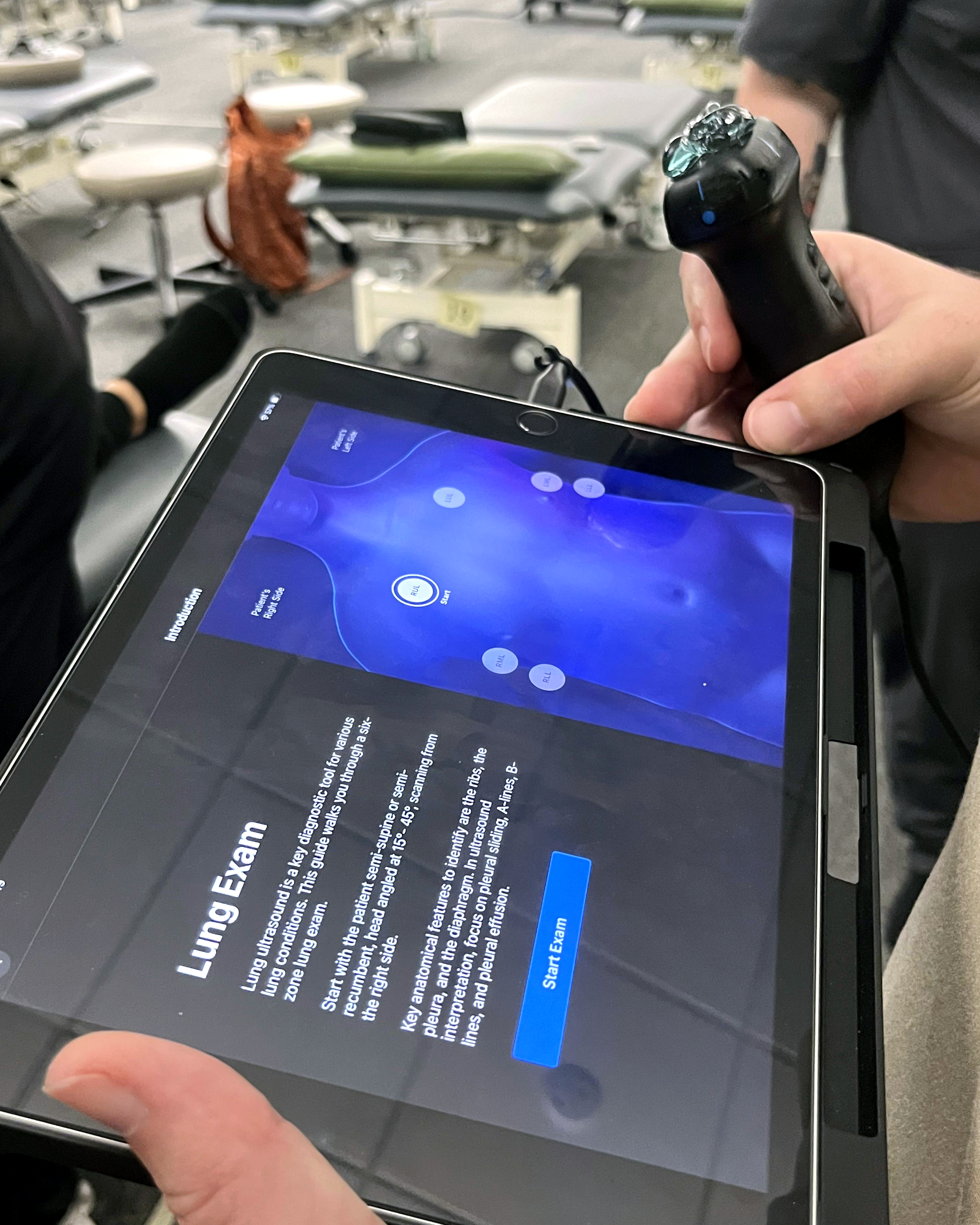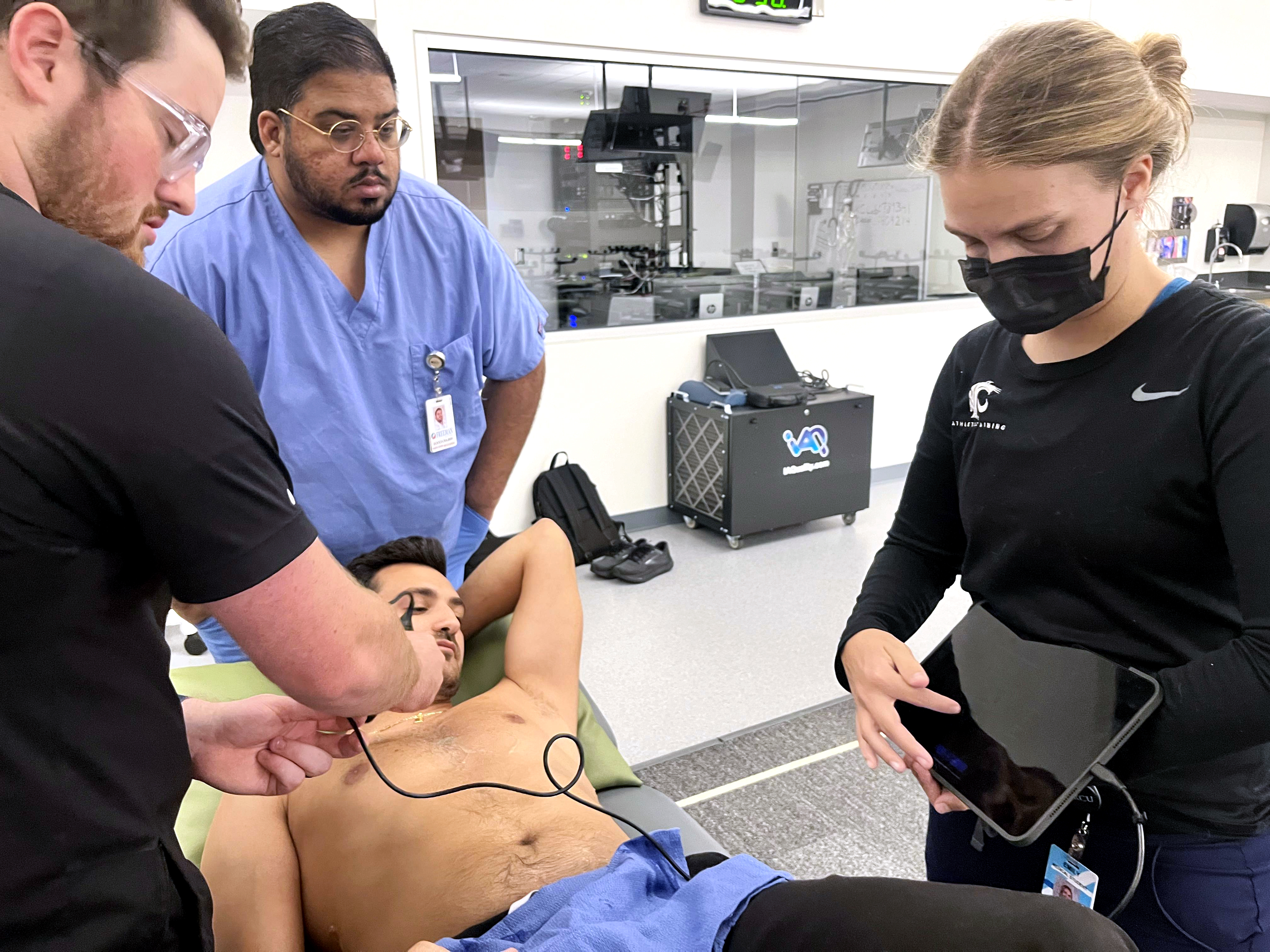Kansas City University (KCU) is revolutionizing medical education by becoming a leader in point-of-care ultrasound (POCUS) training. In collaboration with Butterfly Network, Inc. (NYSE: BFLY), KCU transformed its POCUS training curriculum by debuting a first-of-its-kind, hands-on POCUS elective in its 2024 curriculum. This innovative program makes KCU the first U.S. medical school to leverage Butterfly ScanLab™ as the foundation of its POCUS curriculum. The approach focuses intensively on student scanning proficiency and is designed to ensure students enter residency and clinical settings ready to perform high-quality ultrasound scans for more accurate and timely patient assessment.
KCU's innovative POCUS program uses the AI-powered ScanLab™ app to provide students with dedicated feedback and guidance that is key to strengthening skills in essential scans, including cardiac, lung and eFAST (Extended Focused Assessment with Sonography in Trauma). The app offers real-time anatomical labeling, step-by-step instructions and feedback on probe placement, all while comparing students' scans to reference images. The AI tool even grades the scans, enabling students to learn independently and refine their skills efficiently.
While POCUS is becoming increasingly vital in modern health care, most medical schools still fail to provide consistent training in this area. Physicians often acquire these essential skills during postgraduate training. KCU is addressing this gap by integrating comprehensive POCUS training into its curriculum, ensuring students are equipped for residency right from the start.
“When you get to residency, there’s a lot to learn,” said Robert Arnce, MD, director of clinical integration at KCU. “If our students enter with POCUS proficiency, that’s one less skill they need to master, and it distinguishes them from other residents.”
John Martin, MD, chief medical officer at Butterfly Network, added, “Empowering students with POCUS skills not only gives them a leg up entering residency but will ultimately lead to higher quality patient care. The AI-powered insights from Butterfly ScanLab are designed to give every student the personal mentorship they need to scan confidently. By integrating this technology into their program, KCU is setting a new standard for medical training in the 21st century.”
This academic year alone, nearly 300 students have enrolled in KCU’s POCUS elective series, using their own personal Butterfly handheld ultrasound devices. As they progress, students simultaneously complete related courses in Butterfly Academy, building confidence and expanding their ultrasound skills at their own pace. With each completed course, students earn certifications, further solidifying their expertise.
“I performed an eFAST exam, a cardiac exam, and a lung exam. It was incredibly valuable to visualize different structures and gain a deeper understanding of anatomy,” said first-year medical student Bryant Pace.
Beyond its educational impact, the mobility and versatility of the Butterfly probe make it indispensable in resource-limited settings, such as rural hospitals or disaster environments. Unlike traditional ultrasound machines, this tool’s portability ensures high-quality care even in challenging circumstances.
“This is a physician skill—one that directly translates into their ability to care for patients,” Arnce continued. “While many aspects of medical school are theoretical, POCUS training gives our students the hands-on experience they need to make a real impact in clinical settings. Research shows that point-of-care ultrasound significantly increases patient satisfaction because doctors spend more time at the bedside. It transforms patient care by integrating ultrasound into daily assessments, diagnoses, and treatments.”
Through its pioneering use of AI-powered tools and its strong focus on practical ultrasound training, Kansas City University is equipping the next generation of physicians with the skills and confidence to stand out in the evolving world of health care. Click here to request more information on applying for the College of Osteopathic Medicine.






(0) Comments